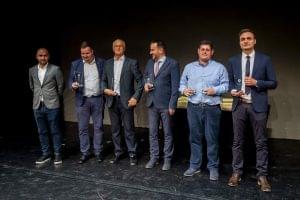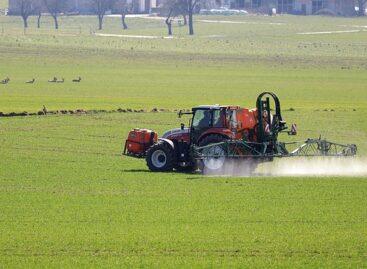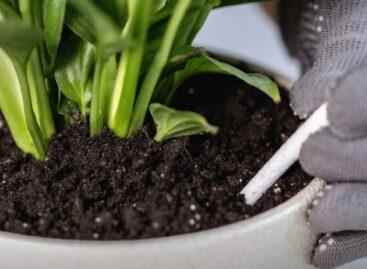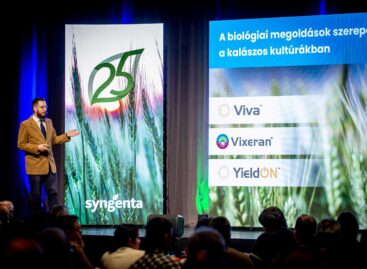Despite the difficult year, the future belongs to the sunflower
During the last twenty years, sunflower has grown into the third most important field crop. The production area of 700,000 hectares in 2022 represents a new record for domestic cultivation of the plant. Although this year’s extremely difficult season broke the good results of the past years, according to the forecast of the sunflower market leader Syngenta, there will still be a high demand for the plant in the future, it was said at the summary conference of the 6-ton professional program initiated by the company.

(Photo: Pixabay)
At the opening, Ferenc Kalmár, the seed business manager of Syngenta Danube Region, expressed his joy that after a short forced break, they can meet their production partners again at a prestigious event, and as he said: “it is a special pleasure to be at an event that is organized around sunflowers. This plant is the heart of the colleagues at the company. In recent years, many positive experiences and joys have been associated with sunflower products, which mainly stem from the results and satisfaction achieved by the producers. It is worth mentioning that approximately 6.5 million hectares of Syngenta’s solar hybrids have been sown in the country over the past 25 years.” According to Ferenc Kalmár, the goal of the 6-ton program is already inspiring: to get the most out of sunflowers with hybrids and plant protection agents. On the other hand, it was very good to see the enthusiasm of the producers and employees participating in the program, how they work together on this goal by developing the individual technological elements.
Demand for sunflowers has increased
Tamás Tóth, seed marketing manager of Syngenta’s Danube Region, said: the demand for sunflower is increasing. While global production was 36 million tons ten years ago, today the amount of sunflower produced is approaching 60 million tons. Hungary is at the forefront of sunflower cultivation, the third most important field crop was grown on 700,000 hectares this year, more than sixty percent of which are Syngenta hybrids, and the company continues to lead the domestic market by a large margin. The specialist explained: the coronavirus pandemic has reduced the traditional demand for oil for tourism and restaurant meals, but consumption at home has increased. In addition, compared to palm oil, which leaves a large ecological footprint, and sunflower oil, sunflower is a more sustainable plant, Europe can practically be self-sufficient locally. And the olive plantations are destroyed by a serious disease. Thus, the attention of the main players in the food industry is increasingly turning towards sunflower, so the plant is becoming more and more valuable. According to market information, the demand for sunflower with high oleic acid will also increase within the sector, the oil made from it is healthier, has higher thermal stability, and the product can be stored longer.
Excellent genetics lead to a large crop
As the program evaluator stated several times at the conference: the 3 pillars of sustainable, integrated farming are genetics, plant protection and appropriate agronomic practices. Albrecht Lász-ló, head of the European sunflower portfolio, said in relation to Syngenta seeds: the upsetting climate processes and the changes in the factors affecting the profitability of farming present a great challenge to breeders. Syngenta’s strategy aims to expand its portfolio with hybrids that are highly resistant to diseases such as downy mildew and other pathogens and tolerate environmental stress well. Speaking about the novelties, Dr. Dóra Ácsné Szekeres, Syngenta’s oilseeds marketing manager, said: this season, Syngenta’s offer will be expanded with four new hybrids: SY Barilio stood out in domestic and foreign trials with its yield and high oil content. There are also 2 new Clearfield® Plus hybrids, SY Fergus and SY Michigan, with higher downy mildew resistance. In addition, the high oleic acid Express®-tolerant NX12298 hybrid is new.
“The experience of the past years shows that Syngenta genetics is capable of even more. In addition to innovative varieties, we help our partners with effective plant protection solutions and the transfer of professional experience. For those who are keenly interested in our 6-ton program in several European countries, in which we are investigating how to best exploit the potential inherent in sunflower genetics with the involvement of more than 50 of our farming partners. The initiative does not mean that everyone will harvest 6 tons within a few years, but we think that thanks to the knowledge and experience gained here, more and more people can reach a higher yield level”, stressed Dr. Dóra Szekeres Ácsné.
New generation plant protection solutions
Seedcare business manager László Fábián said: crop protection plays an important role, as sunflowers are threatened by more and more pests and pathogens. Syngenta’s new, complex weeding solution, Elevation and Elevation Plus, which combines the active ingredients of four preparations, protects the sown seed during the most important period.
“The role of plant biostimulation will be appreciated in the future, for which Syngenta will also be able to offer a product of the usual quality, with the Quantis product,” explained development engineer Dr. Viktor Nagy. However, in order to correctly use the biostimulator based on amino acids, enriched with nutrients, we need to know the physiological processes of the plant, we need to understand the plant itself. By applying Quantis twice per day, up to 13% more crops can be realized.
Third factor: efficient technology
The third element of sunflower cultivation is efficient cultivation technology, which includes soil cultivation, nutrient supply, sowing, plant protection, row orientation, row spacing and irrigation. Dr. László Piukovics, sales effectiveness manager, presented the possibilities of sunflower cultivation under drought conditions. As he said: in the early development phase, drought has a less negative effect on the sunflower crop, the critical period lasts from the beginning of flowering to the end of ripening. The total water requirement of sunflower is nearly 450-470 mm during the growing season. András Zilahi, the head of the technical development team, covered the issue of the number of stems and row spacing in a presentation. The specialist emphasized: the goal is to maximize the crop yield per unit area by optimizing the plant density and spatial arrangement, making maximum use of the natural energy sources available to the plants.
In the presentation of development engineer Attila Szeleczki, he explained: in the 6-ton program, this year the focus was on more reasonable nitrogen supply, and next year, the role of micro- and macronutrients will be scrutinized more thoroughly. This year, the partners participating in the program were tested for mineral nitrogen from the depths of 0-90 centimeters in the soil, because it is very important to know exactly how much nitrogen is available in the deep root zone of the sunflower. The amount of nitrogen to be spread is given by the humus content measured in 90 cm and the targeted crop.
Even in a difficult year, there are outstanding results
In this year’s extremely difficult growing season, the result is expected to be around 2 tons in the national average, which falls short of the high results of previous years. The yield average shows a large deviation per landscape unit, there are areas where the result of 4-5 tons was also achieved. At the event, Syngenta awarded the participant with the best results in the country: Pannon Kft. harvested 5.2 tons of sunflowers from one hectare this season. Apart from them, many producers achieved results between 4.3 and 5.1.

Related news
Nébih experts examined food bars used in plant nutrition
🎧 Hallgasd a cikket: Lejátszás Szünet Folytatás Leállítás Nyelv: Auto…
Read more >Related news
How Coca-Cola plans to build more billion-dollar brands
🎧 Hallgasd a cikket: Lejátszás Szünet Folytatás Leállítás Nyelv: Auto…
Read more >Brits Embrace At‑Home Celebrations While Germans Cut Back on Valentine’s Day Spending
🎧 Hallgasd a cikket: Lejátszás Szünet Folytatás Leállítás Nyelv: Auto…
Read more >








